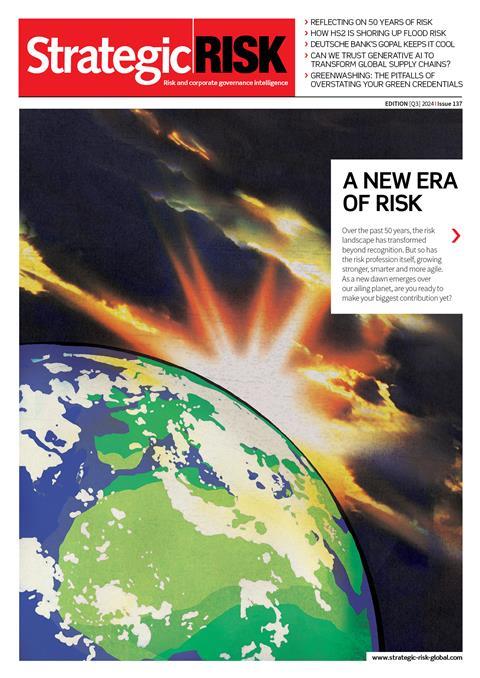Higher threat to goods in storage and transit, especially those which are high-value, perishable or temperature-sensitive, as outbreak disrupts supply chains
Transportation of cargo is still regarded as an essential activity by governments around the world despite current lockdown restrictions. However, many companies are having to shut down operations and are unable to handle cargo because of the coronavirus outbreak.
News of such closures may not always reach transportation providers for goods in transit until after arrival at the intended destination, which brings increasing risks for owners and handlers of high-value and perishable and temperature-sensitive goods, according to the risk consultants of Allianz Global Corporate & Specialty (AGCS).
“The current pandemic situation has impacted the global supply chain in an unprecedented manner and risks to cargo in storage and transit, especially to high-value and temperature- sensitive goods have significantly increased,” says Captain Rahul Khanna, global head of Marine Risk Consulting at AGCS.
“Locked down and unmanned facilities means not only an increased risk of theft and fire to the cargo but also risk of damage to goods due to extended storage periods. Transit disruptions to cargo due to closed borders, delayed customs clearances or simply due to lack of personnel can mean long delays to delivery times or even cargo being abandoned.”
”Companies should do all that they possibly can to implement robust planning of cargo shipments and ensure they have back-up plans in place because of the last minute shutdowns we are seeing around the world,” he adds.
Analysis of marine insurance industry losses by AGCS over a five year period shows that damaged goods, including containers, is already one of the most frequent cause of losses, accounting for more than one in five claims (22%), based on more than 230,000 claims.
In a new publication, AGCS experts highlight a number of practices for beneficial cargo owners to consider when developing contingency plans, focusing on two areas in particular: risks for cargo storage and risks for goods in transit.
Cargo storage risks
The accumulation of unattended cargo in warehouses increases the threat of theft and organised crime. Where possible companies should consider to strengthen warehouse security and check alarm functionality.
Companies should also consider checking whether prolonged staging of loaded trailers outside of warehouse locations can be avoided, as this increases the risk of cargo theft and damage.
With the coronavirus outbreak having the potential to cause prolonged disruption to supply chains, inventory turn times will increase and capacity in warehousing spaces will be limited, therefore companies should also consider identifying alternative warehouse capacity in the event occupied spaces can no longer safely receive cargo.
Cargo transit risks
Companies should endeavor to obtain confirmation that the final destination is still able to receive cargo prior to beginning the shipment and make preparations for its possible non-receipt, as an increasing number of organisations are ceasing operations at short notice.
Utilising trailers that have integrated GPS technology whenever possible and also integrating Internet of Things (IoT) monitoring devices into cargo packaging can enhance shipment visibility. These devices can provide real-time location information in the event of shipment deviation or delay.
Where possible companies should also consider reviewing requirements for perishable cargoes. Food and pharmaceutical products associated with the response to the coronavirus outbreak have been given priority for temperature-controlled capacity. Therefore, non-critical perishables will be subject to increased transit time as temperature-controlled capacity is stretched.
Consider to review packaging design to ensure applied schemes are able to maintain required product temperature for an extended period of time. Additional packaging or storage configurations should be considered for “just in time” perishable products not deemed critical under the latest guidance.




















No comments yet